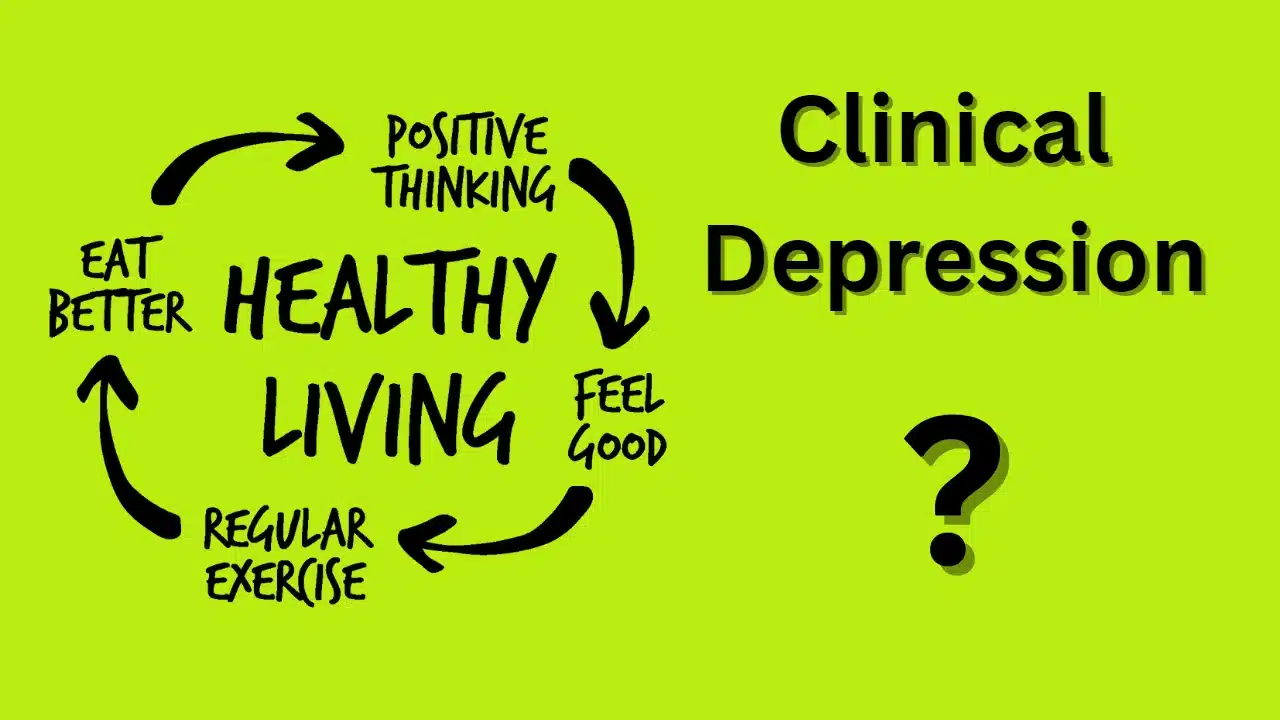What Is Clinical Depression?
If you or someone you know is experiencing symptoms of depression, it is important to seek professional help. Treatment options include psychotherapy, medication, and lifestyle changes such as exercise and stress management techniques.
Risks Of Clinical Depression
Depression can develop as a result of a combination of genetic, biological, environmental, and psychological factors. Some of the common risk factors for depression include:
- Family history: Depression can run in families, so having a close relative with depression increases the risk of developing the condition.
- Trauma and stressful life events: Trauma, such as physical, emotional or sexual abuse, and stressful life events like divorce, job loss, or financial difficulties, can trigger depression.
- Brain chemistry: Imbalances in certain chemicals in the brain, such as serotonin and dopamine, can contribute to the development of depression.
- Chronic illness: Chronic illnesses such as heart disease, cancer, and diabetes can increase the risk of depression.
- Substance abuse: Substance abuse, such as drugs and alcohol, can increase the risk of depression.
- Lack of social support: Feeling isolated and having limited social support can increase the risk of depression.
- Gender: Women are twice as likely as men to experience depression.
It is important to note that having one or more of these risk factors does not necessarily mean a person will develop depression, and people without these risk factors can still develop the condition.
What Are The Symptoms of Clinical Depression
The symptoms of depression can vary from person to person, and the severity of symptoms can range from mild to severe. The following are some common symptoms of depression:
1. Persistent Sadness: A deep and enduring feeling of sadness, emptiness, or despair that lasts for most of the day, nearly every day.
2. Loss of Interest or Pleasure: A lack of interest or pleasure in activities that were once enjoyable, including hobbies, social interactions, or work-related tasks.
3. Changes in Appetite and Weight: Significant changes in appetite leading to noticeable weight gain or loss over a short period.
4. Sleep Disturbances: Insomnia, or difficulty falling or staying asleep, or hypersomnia, which involves excessive sleeping, often accompanied by nightmares or disturbing dreams.
5. Fatigue: Persistent feelings of tiredness and lack of energy, even after rest or sleep.
6. Feelings of Guilt or Worthlessness: Unwarranted guilt, self-blame, or feelings of worthlessness, even if there is no rational reason for these feelings.
7. Difficulty Concentrating: Inability to focus, make decisions, or remember details, which can significantly affect work, school, or daily tasks.
8. Physical Symptoms: Aches, pains, headaches, or digestive issues without a clear medical cause, often related to the emotional distress caused by depression.
It’s important to note that some of these symptoms can also be indicative of other medical or psychological conditions. If you or someone you know is experiencing these symptoms for an extended period, it’s important to seek professional help. A healthcare provider can help diagnose depression and create an appropriate treatment plan.

In addition to the common symptoms mentioned earlier, here are some additional symptoms of clinical depression that can be associated with depression:
- Decreased libido
- Feelings of worthlessness, hopelessness, or helplessness
- Changes in weight, either gain or loss
- Physical symptoms such as headaches or back pain
- Social withdrawal, avoiding social interactions or activities
- Increased use of drugs or alcohol
- Difficulty with memory or concentration
- Persistent negative thoughts or self-talk
- Changes in mood, including feelings of irritability, anger, or agitation
- Decreased performance at work or school
It’s important to note that not everyone with depression will experience all of these symptoms, and some people may experience symptoms that are not listed here. Additionally, some symptoms may be more prevalent in certain types of depression, such as seasonal affective disorder or postpartum depression. If you are concerned about any symptoms you may be experiencing, it’s important to speak with a healthcare professional for a proper evaluation and diagnosis.
















